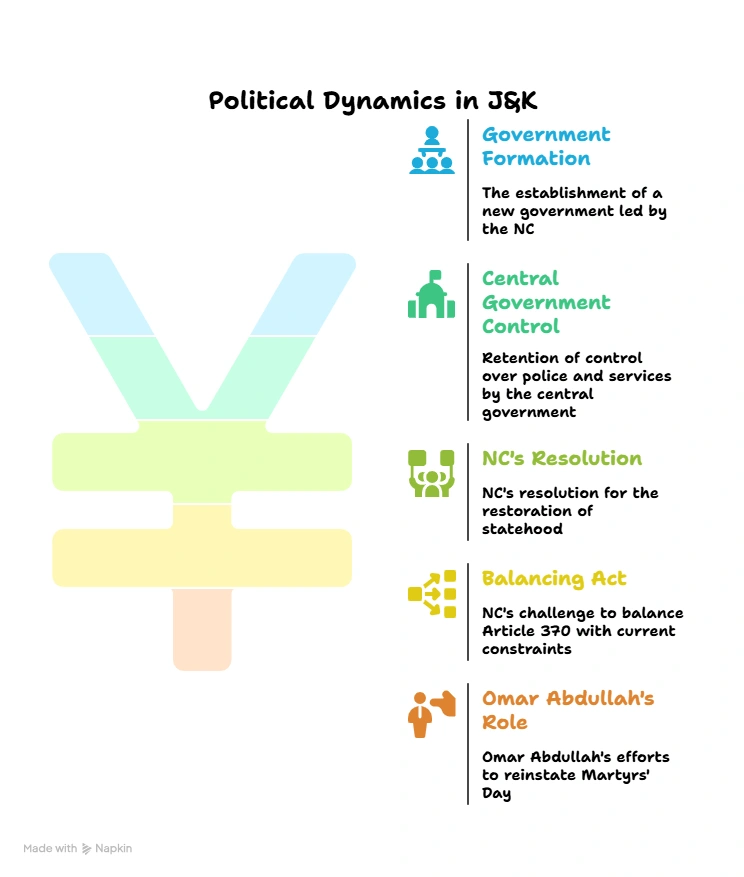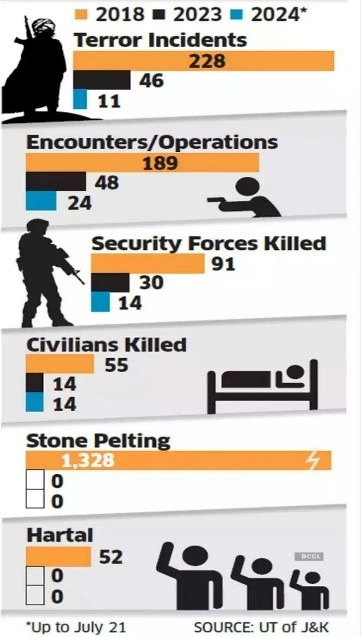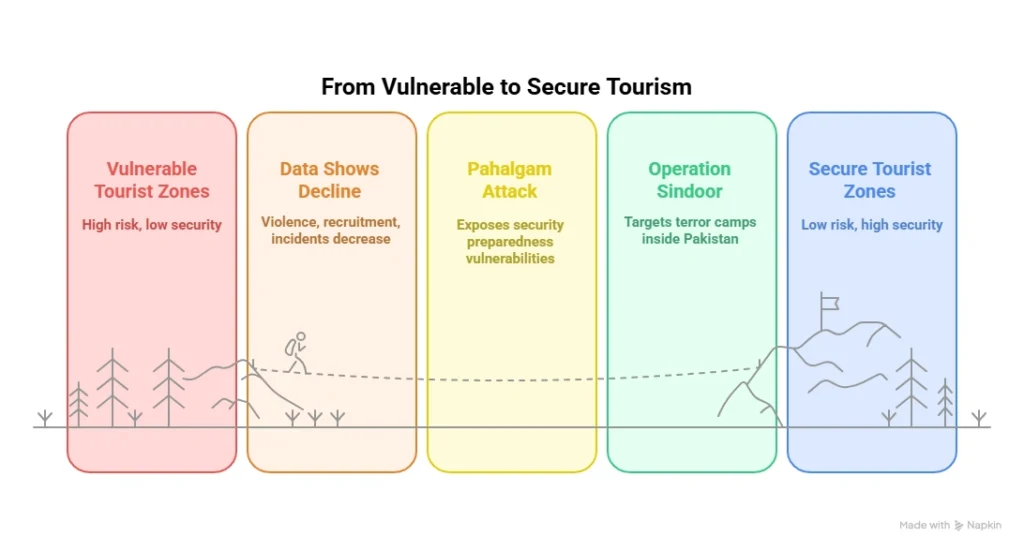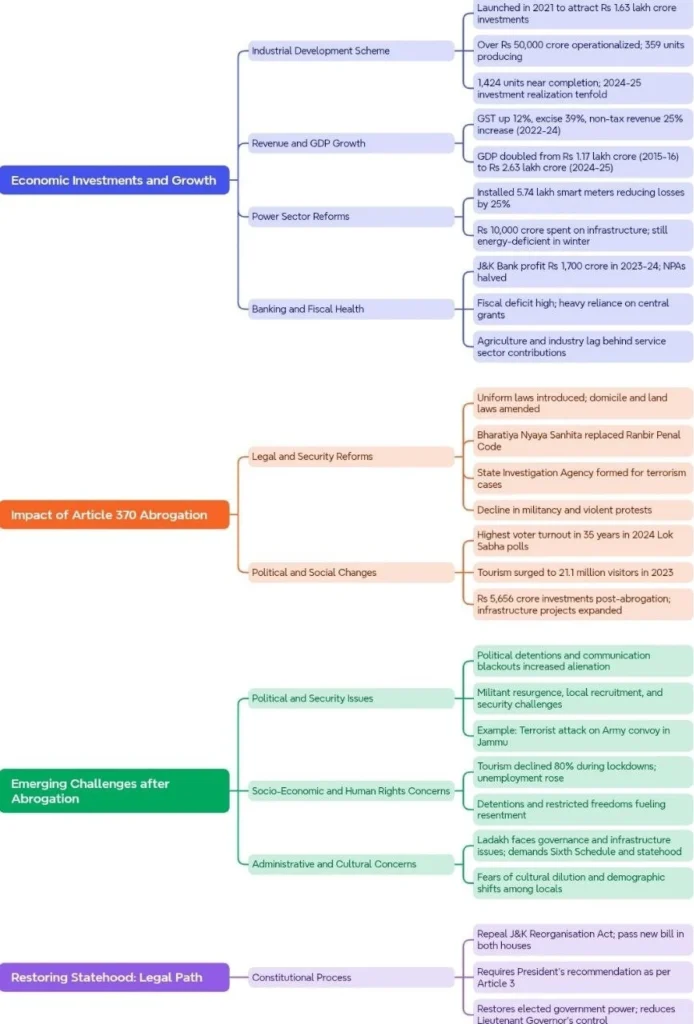Paper: GS – II, Subject: Polity, Topic: Legislature, Issue: Abrogation of Article 370.
Context:
The sixth anniversary of the abrogation of Article 370, which granted special status to Jammu and Kashmir, was recently observed. This constitutional change was implemented by the Government of India on 5th August 2019.
Key Takeaways:
Article 370 of the Indian Constitution:
- Article 370 is the first article of Part XXI of the Constitution ‘Temporary, Transitional and Special Provisions’.
- It exempts J&K from the application of the Constitution of India (except Article 1 and Article 370 itself) and permits the state to draft its own Constitution.
- It restricts Parliament’s legislative powers in respect of J&K and for extending a central law on subjects included in the Instrument of Accession (IoA), mere “consultation” with the state government is needed.
- IoA was signed by Raja Hari Singh of the then princely state of J&K and Governor General Lord Mountbatten in 1947.
- The IoA gave Parliament the power to legislate in respect of J&K only on Defence, External Affairs and Communications.
- But for extending it to other matters, “concurrence” of the state government is mandatory.
- Article 370 had been described as a tunnel through which the Constitution was applied to J&K. By the 1954 order, almost the entire Constitution was extended to J&K including most Constitutional amendments.

| Removal of Special Status of J&K: Article 370(3) permits deletion of special status of J&K by a Presidential Order. Such an order, however, is to be preceded by the concurrence of J&K’s Constituent Assembly. Since such an Assembly was dissolved on January 26, 1957, one view is that special status cannot be removed. But the other view is that it can be done, only with the concurrence of the State Assembly. In 2019, the Constitution (Application to Jammu and Kashmir) Order 2019, issued by the President, withdrew the special status of J&K and extended all provisions of the Indian Constitution to J&K. The J&K (Reorganisation) Act 2019 bifurcated J&K into two UTs J&K was an UT with a Legislative Assembly; Ladakh was without an Assembly. Recently, the Supreme Court of India began hearing the petitions challenging the 2019 abrogation of Article 370. |


Economy and Political Changes in Jammu and Kashmir Post – Article 370 abrogation:

Six years after Article 370’s abrogation, Jammu & Kashmir has seen progress in security, politics, and economy. However, challenges like limited autonomy, fragile security, and dependence on central aid persist. Restoring statehood and ensuring local empowerment remain key goals.
La Excellence IAS Academy, the best IAS coaching in Hyderabad, known for delivering quality content and conceptual clarity for UPSC 2025 preparation.
FOLLOW US ON:
◉ YouTube : https://www.youtube.com/@CivilsPrepTeam
◉ Facebook: https://www.facebook.com/LaExcellenceIAS
◉ Instagram: https://www.instagram.com/laexcellenceiasacademy/
GET IN TOUCH:
Contact us at info@laex.in, https://laex.in/contact-us/
or Call us @ +91 9052 29 2929, +91 9052 99 2929, +91 9154 24 2140
OUR BRANCHES:
Head Office: H No: 1-10-225A, Beside AEVA Fertility Center, Ashok Nagar Extension, VV Giri Nagar, Ashok Nagar, Hyderabad, 500020
Madhapur: Flat no: 301, survey no 58-60, Guttala begumpet Madhapur metro pillar: 1524, Rangareddy Hyderabad, Telangana 500081
Bangalore: Plot No: 99, 2nd floor, 80 Feet Road, Beside Poorvika Mobiles, Chandra Layout, Attiguppe, Near Vijaya Nagara, Bengaluru, 560040
